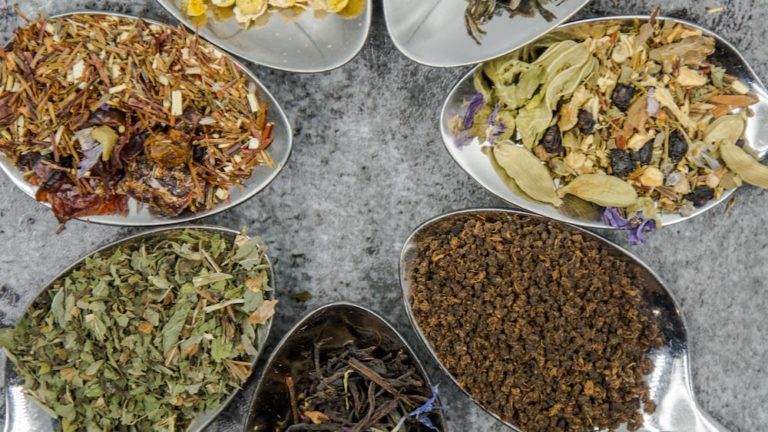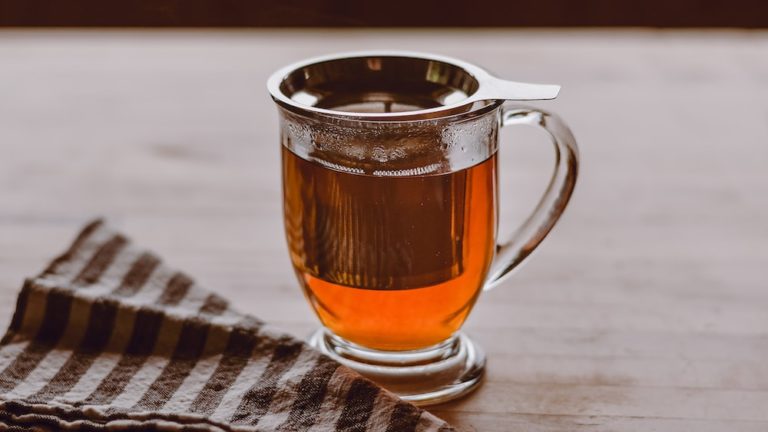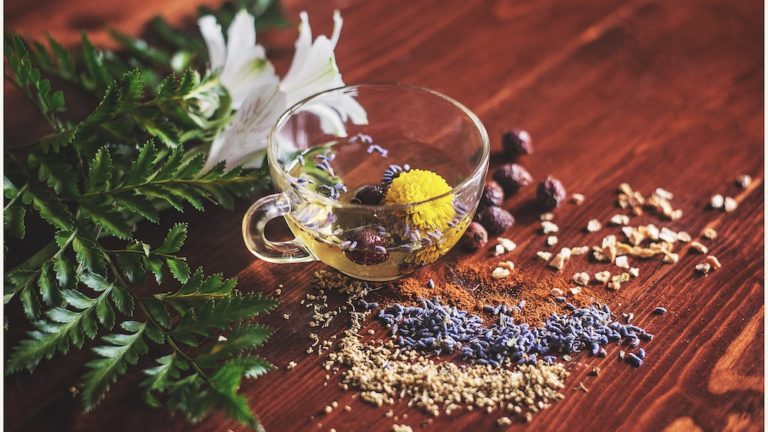Green Tea Inflammation: Unleash The Anti-Inflammatory Power

Green Tea Inflammation: Unleash The Anti-Inflammatory Power
You know that warm, peaceful feeling you get when you wrap your hands around a steaming cup of green tea, inhaling its earthy aroma, and taking that first, flavorful sip? Ah, pure bliss! But did you know, there’s a lot more brewing in your cup than just that comforting taste? For my fellow tea lovers and seekers of respite from inflammation, buckle up. You’re about to embark on a fascinating journey exploring the potent anti-inflammatory power of green tea.
It seems like our ancestors knew something we didn’t when they started brewing leaves in boiling water thousands of years ago. Turns out, they were onto a pretty big health secret here, folks. Green tea, with its humble roots in ancient China, has been stealing the wellness spotlight globally – thanks to a plethora of health benefits. And one such blessing that stands out? You guessed it – its extraordinary ability to fight inflammation. It’s like this superhero dressed in gentle green, battling the evil villain called inflammation, and oh boy, it sure puts up quite a fight!
Your inflammations stand no chance when green tea gets the gloves on. But before you go running to exchange your pharmacy’s anti-inflammatory section with the tea aisle, let’s dig deeper. How does this ‘green therapy in a cup’ work, and should it be your go-to for inflammation? Well, if you’re perked up on the edge of your seats, ready for a deep dive into the world of green tea inflammation management, then I’d say you’re in the right place!
Understanding Green Tea and Inflammation
Alright, let’s get into the nitty-gritty of our anti-inflammatory champ – green tea, and its arch-nemesis – inflammation. Stay with me. The reality of this relationship is as thrilling as any superhero saga you’ve ever watched.
What is Green Tea?
Now, you’ve probably met Green Tea quite a few times, taking center stage in fancy tea houses, or in the wellness sections of grocery stores. But what really is Green Tea? Picture a chameleon. Always changing, yes? That’s an apt metaphor for our star, ‘Green Tea’.
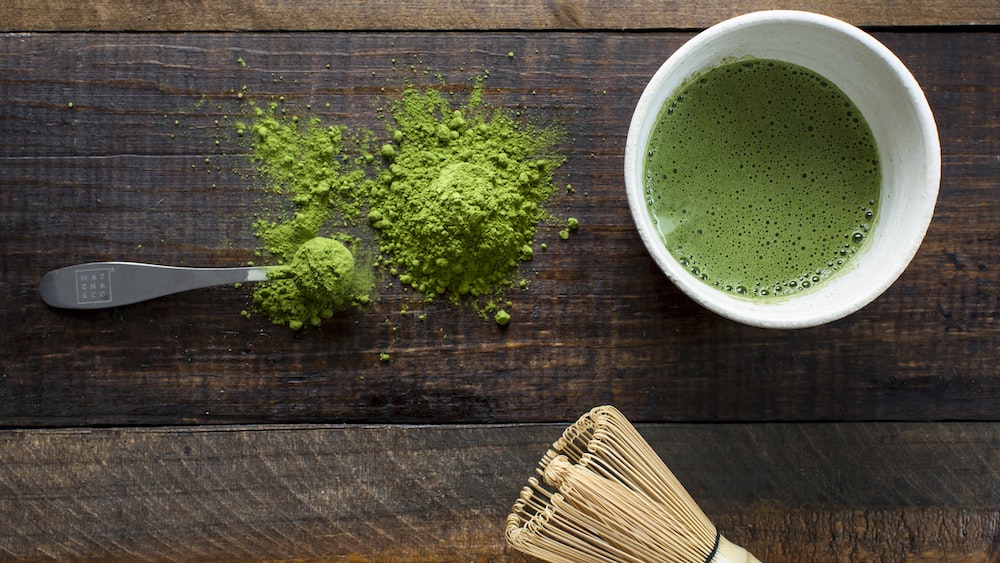
Birthed from the plant Camellia sinensis – the same one that gives us black and oolong teas – green tea is unique. And the credit for that goes to its processing. Let’s compare it with a freshly plucked apple. When you leave it untouched, it turns brown. That’s oxidation. But slice it and immediately sprinkle a dash of lemon juice, and voila, the browning slams the brakes. Similarly, green tea leaves are quickly heated after plucking to prevent oxidation, helping them retain their green color, delicate flavor, and most importantly, a richly stocked treasury of compounds called catechins.
But before you start cataloging green tea as just another nutrition-packed leaf, hold your horses. The magic of green tea, my dear aficionados, resides in these catechins – and more precisely, in a heroic catechin named EGCG. More on that later.
Green tea is unique because its processing prevents oxidation, allowing it to retain its green color, delicate flavor, and a richly stocked treasury of compounds called catechins, with the magic residing in a heroic catechin named EGCG.
The Connection Between Green Tea and Inflammation
So, you’ve met the superhero. Now, let’s introduce the villain that keeps it on its toes – inflammation. It’s the body’s natural way of fighting off infections, healing wounds, or warding off harmful intruders. That’s the good part. The snag is, sometimes this defense system oversteps its boundaries. Instead of switching off when the job is done, it remains active. This is chronic inflammation, a main event in the body’s internal trouble fest. And this is where our superhero, green tea, swoops in.
Green tea, donned in green capes, carries in its arsenal potent anti-inflammatory weaponry. What’s that, you ask? Its antioxidants, particularly catechins, that interact with the body’s inflammatory responses, nipping any inflammation havoc in the bud. It’s like the Incredible Hulk in a leaf, flexing its muscles against inflammation from body tissues to blood vessels.
Say you’re feeling like a swollen balloon, or like your muscles are throwing a riot. Armed with potent bioactive compounds, green tea is ready to rumble. It goes all Bruce Lee on inflammation markers like C-reactive protein and interleukin-6, showing them their place.
The Anti-Inflammatory Properties of Green Tea
To understand what makes green tea a pocket-sized inflammation pharmacy, let’s unravel its anti-inflammatory mysteries.
How Green Tea Fights Inflammation
It’s time to get down to the ‘tea leaf’ of the matter. How exactly does green tea wage war against inflammation? It battles inflammation on multiple fronts – like a well-trained army.
Primarily, green tea acts like a peace negotiator, intervening in the body’s inflammatory signaling pathways. It steps in and calms these pathways down, stubbing out inflammation before it gains momentum.
Furthermore, green tea also pulls a ‘Mission Impossible’ on free radicals – the unstable molecules that pick fights within your body, kick-starting the inflammation process. Packed with powerful antioxidants, green tea neutralizes these troublemakers, thus defusing an inflammation time bomb.
And guess what? This isn’t just in theory. Green tea has proven its anti-inflammatory prowess in a multitude of scientific studies. Ready for a walk through the research universe?
The Role of Catechins in Green Tea
I hope you haven’t forgotten our superhero’s secret weapon – catechins especially the rockstar EGCG (Epigallocatechin Gallate). These are like green tea’s inflammation-fighting ninjas, majorly contributing to its mighty powers.
And EGCG? It’s green tea’s crown jewel, the most potent catechin. Think of it as the Thor of catechins that pulls a ‘lightning strike’ on inflammation. Studies have shown that EGCG goes on an all-out offensive against the body’s pro-inflammatory pathways, helping to douse the inflammation flames.
So, when you pour yourself that golden-tinged brew of green tea, remember, you’re activating an army of anti-inflammatory warriors ready to guard your body against inflammation assaults. And with our hero EGCG leading the charge, inflammation might just need to look for other galaxies to invade.
Scientific Studies on Green Tea and Inflammation
Still not convinced about green tea’s anti-inflammatory powers? Well, it’s time to introduce some unbiased referees – scientific studies that have explored this intriguing connection.
Evaluation of Anti-inflammatory Effects of Green Tea
Numerous studies have confirmed our tea hero’s superb anti-inflammatory skills. For instance, research was conducted to investigate green tea’s effects on the inflammation marker, C-reactive protein. The results? Those who drank green tea had significantly lower levels of the protein.
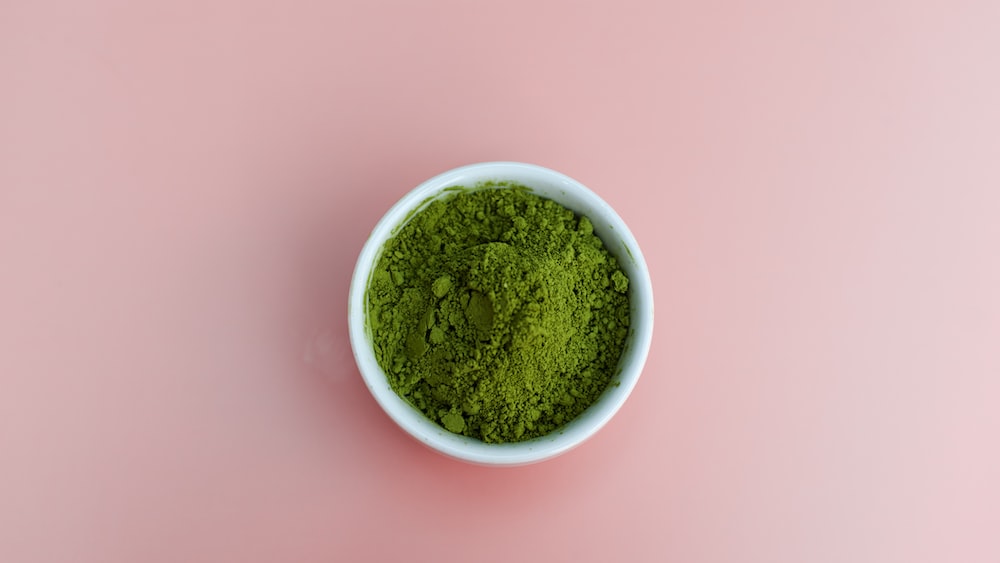
And that’s not all. Another research found that green tea extract could decrease inflammatory symptoms in individuals suffering from Rheumatoid Arthritis, a condition characterized by chronic inflammation. We’re talking about green tea going full-on Rambo on inflammation in your joints here!
And there’s more. Patients with metabolic syndrome (a health condition often spotlighting inflammation) were found to have reduced inflammation after sipping green tea. If adding green tea to their diet helped soothe inflammation for these patients, imagine what it could do for people dealing with everyday inflammations! So, grab your favorite mug, and let green tea perform its scientific magic.
Green tea has been proven to have powerful anti-inflammatory effects, reducing levels of inflammation markers and providing relief for conditions like Rheumatoid Arthritis and metabolic syndrome.
Green Tea’s Impact on Biomarkers of Inflammation
Have you ever wondered how scientists measure inflammation in the body? They observe biomarkers or measurable changes your body undergoes when inflammation is around. And it turns out, green tea seems to be a bit of a biomarker party pooper.
Research shows that EGCG (epigallocatechin gallate), one of the mighty catechins in green tea, runs around our body like a superhero, fighting against these biomarkers. EGCG has been seen in studies to reduce levels of inflammatory biomarkers such as C-reactive protein and interleukin-6. This makes consuming green tea a proactive measure to suppress inflammation before it snowballs into serious health concerns.
In essence, regularly drinking green tea is like hiring an internal commando team that disarms inflammation time-bombs before they wreak havoc. The EGCG squad, being the key operative, focuses on reducing these inflammatory biomarkers. Together, they champion the cause of keeping your inflammation markers in check, tightening the security against chronic inflammation.
Green Tea vs. Other Anti-Inflammatory Teas
When it comes to the tea wars, the green tea inflammation battle is a titan clash. Undeniably, there are other teas that contest for the anti-inflammatory crown, such as black tea and various herbal teas. But how does our emerald hero compare?
Comparison with Black Tea
Black tea is like the older brother to green tea – coming from the same plant, Camellia Sinensis, but undergoing a different maturing process. This process leads to a higher caffeine content but a lower catechin count than it’s younger green sibling.
While black tea does contain anti-inflammatory properties, if we pitch a black tea vs. EGCG-rich green tea match, the emerald cup emerges victorious. It’s not that we don’t love black tea, it’s just that for inflammation, green tea seems to be the star quarterback.
Comparison with Herbal Teas
Herbal teas too, provide rich anti-inflammatory benefits, but an unbiased comparison reveals that green tea holds the upper hand. Herbal teas, like chamomile, enjoy wide acclaim for their calming properties but their anti-inflammatory power doesn’t quite match up to that of green tea.
When pitted against powerful herbs like turmeric, the contest becomes more balanced. Turmeric has a strong anti-inflammatory profile, but the absence of EGCG plays in favor of green tea. Hence, while herbal teas make excellent inflammation-busting accomplices, green tea cradles the crown.
How to Incorporate Green Tea into Your Diet
If adding more green tea to your diet sounds like a plan of attack against inflammation, join the club. Let’s explore how you can incorporate it effectively into your diet.
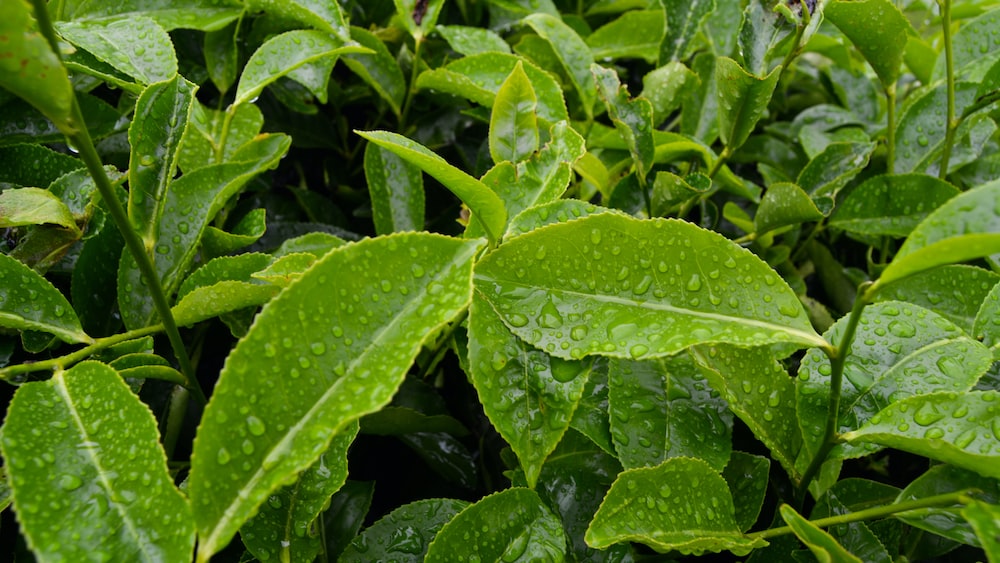
Drinking Green Tea for Inflammation
Drinking green tea is as easy as… drinking tea. It’s as simple as steeping the leaves in hot water. But the key is consistency. Commit to at least 1-3 cups per day to truly reap the anti-inflammatory benefits of this jade elixir. Look at it as refilling your army of inflammation-fighters.
A word to the wise, though: Don’t overboil your tea or drench it with sugar. Overindulge, and you risk counteracting the antioxidant effects of the tea. Instead, enjoy your tea as pure as the raindrops on a fresh matcha leaf – you’ll appreciate the authentic character and potent benefits!
Commit to at least 1-3 cups of green tea per day to truly reap the anti-inflammatory benefits and avoid counteracting its effects with excessive boiling or sugar.
Other Ways to Consume Green Tea
Beyond conventional sipping, green tea is quite the versatile soldier in your inflammation-fighting arsenal. Matcha is essentially powdered green tea leaves, and due to this, it carries a more concentrated catechin punch than brewed leaves. Consider adding matcha powder to your smoothies, oatmeal, or baking for an extra inflammation-busting kick.
Also, don’t ignore the comeback kid – cold-brewed green tea. It brings with it a smooth flavor and retains nearly all of its catechin content, making it a worthy substitute for your regular cup. So whether with matcha powder in your recipes or in a cold brew, green tea can stealthily infiltrate your diet!
Potential Risks and Precautions
While green tea is generally safe for consumption, it’s crucial to remember the mantra, “too much of a good thing can be bad.” It’s important to enjoy green tea responsibly while reaping its anti-inflammatory benefits.
Side Effects of Green Tea
Just like a coin, green tea has two faces. Yes, it’s a super brew but keep in mind it’s not a guilt-free magic potion. While using green tea for inflammation can be beneficial, there can be some side effects especially when consumed in excess. Too much green tea might trigger caffeine-related symptoms such as insomnia, rapid heart rate, nervousness, and upset stomach.
Moreover, consuming large quantities of green tea might affect your intestine. Notably, some chemicals present in green tea can cause an upset stomach and constipation. To avoid such discomforts, limit your daily intake to two to three cups or follow your nutritionist’s advice.
Who Should Avoid Green Tea?
Green tea might not be everyone’s cup of tea. Pregnant and breastfeeding mothers are usually advised to avoid or limit their consumption. This is because certain compounds in green tea could potentially affect fetal development or pass through breast milk to the child.
Grouping individuals into specific categories, people with bleeding disorders, heart conditions, and those sensitive to caffeine should also exercise caution. The blood-thinning effects of green tea may exacerbate bleeding disorders. For individuals with heart conditions, the caffeine in green tea may interfere with heart rhythm. Conversely, if you’re the kind of person who’s overly sensitive to caffeine, it’d be wise to monitor your intake to avoid any stomach disturbances, insomnia, or jitteriness commonly associated with caffeine.
Lastly, green tea interacts with certain medications. Hence, if you fall within the lp + gt group, which represent individuals on liver processing medications and green tea, you might want to discuss with your healthcare provider before adding green tea to your daily routine.
Frequently Asked Questions (FAQs)
1. How Much Green Tea Should I Drink to Reduce Inflammation?
To reap the anti-inflammatory benefits of green tea, you may consider drinking three to four cups daily. However, bear in mind that the amount can vary depending on individual tolerances and health status.

2. Can Green Tea Replace Anti-Inflammatory Medication?
While green tea does boast anti-inflammatory properties, it should not be seen as a sole replacement for anti-inflammatory medication. Always consult with your healthcare provider for personalized advice on managing inflammation.
3. Does the Type of Green Tea Matter for Inflammation?
Yes, the type of green tea can impact its inflammation-fighting potential. Usually, matcha and sencha green teas are highly rich in anti-inflammatory compounds known as catechins.
4. Can I Consume Green Tea in Other Forms for Inflammation?
Indeed, besides drinking, green tea is available in various forms such as powder, supplements, or even as an ingredient in food. However, always remember, when it comes to green tea, it’s the quality that matters over quantity.
Conclusion
And there you have it, my dear tea aficionados! The magical realm of green tea and the power it wields against inflammation. Now, isn’t it reassuring to know that a humble cup of this gorgeous green brew can offer such profound health benefits?
While green tea might not be the elixir of life, it’s undoubtedly a potent weapon in our arsenal against inflammation. And remember, while managing green tea inflammation, consistency holds the key. Swapping your coffee mug for a green tea cup now and then might be a small lifestyle change, but it can lead to a healthier you.
But caveat teapotor! Always remember, green tea is a brilliant companion for health, but it’s not a panacea for every illness. Individual health requirements and tolerances may vary. When it comes to your health, always put yourself in knowledgeable hands.
Until we share our next cup of wisdom (wink), go seize the day, and remember, the best time to enjoy a cup of green tea is always now. Signing off, Zoe.


